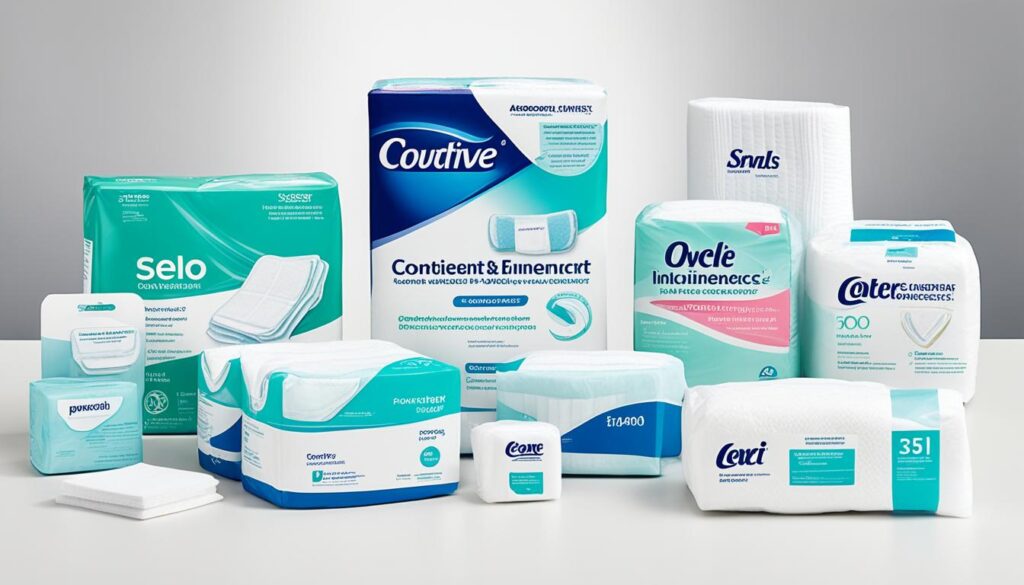Suppose you or a loved one is struggling with bowel incontinence. In that case, you know how it can significantly impact your quality of life. The constant worry and embarrassment can take a toll on your emotional well-being. While it’s crucial to consult a doctor for proper evaluation and treatment, some bowel incontinence home remedies can help relieve symptoms and improve your daily life.
Table of Contents
ToggleEating a diet rich in fibre can promote regular bowel movements and reduce the risk of leakage. Additionally, limiting your intake of caffeine, as it can irritate the bowels, may provide some relief. Identifying and avoiding problem foods that trigger your symptoms, such as spicy or greasy foods, can also make a difference.
Another effective bowel incontinence home remedies. This involves establishing a routine for going to the bathroom at the same time each day, which can help regulate bowel movements. Additionally, performing Kegel exercises, which strengthen the pelvic floor muscles, can improve bowel control and reduce the frequency of accidents.
It’s important to note that while these home remedies can help alleviate symptoms, they are not a substitute for medical advice. It’s essential to discuss these remedies with your healthcare professional to ensure they are appropriate for your specific situation. Together with medical treatment and lifestyle changes, bowel incontinence home remedies can play a significant role in managing bowel incontinence and improving your quality of life.
Causes of Bowel Incontinence
Bowel incontinence, also known as faecal incontinence, can have various causes that contribute to the loss of bowel control. Understanding these causes can help in identifying the appropriate treatment and management options. The primary Bowel Incontinence Causes include:
1. Obstetric Trauma
Obstetric trauma, such as a difficult delivery or a large baby, can cause damage to the muscles and nerves in the rectum. This damage weakens the sphincter muscles responsible for controlling bowel movements, leading to incontinence later in life.
2. Muscle Damage
Muscle damage in the pelvic area, resulting from injury or surgery, can disrupt the normal functioning of the sphincter muscles. This damage impairs their ability to hold or release stool, leading to bowel incontinence.
3. Nerve Damage
Nerve damage, commonly caused by medical conditions such as multiple sclerosis or diabetes, can affect the communication between the brain and the sphincter muscles. This disruption compromises bowel control and can result in leakage of stool.
4. Chronic Constipation and Enlarged Hemorrhoids
Chronic constipation and enlarged haemorrhoids can also contribute to the development of bowel incontinence. Straining during bowel movements can weaken the muscles and damage the nerves involved in maintaining bowel control.
It is important to note that these causes are not exhaustive, and bowel incontinence may have other underlying factors. Consulting a healthcare professional is essential for accurate diagnosis and personalized Bowel Incontinence Treatment plans.
| Cause | Description |
|---|---|
| Obstetric Trauma | Damage to the muscles and nerves in the rectum due to difficult childbirth or large babies. |
| Muscle Damage | Injury or surgery in the pelvic area that affects the functionality of the sphincter muscles. |
| Diabetes Nerve Damage | Impaired communication between the brain and the sphincter muscles due to conditions such as multiple sclerosis or diabetes. |
| Chronic Constipation and Enlarged Hemorrhoids | Persistent difficulty in passing stools and the presence of swollen veins in the rectum and anus. |

Bowel Incontinence Home Remedies
Before trying any bowel incontinence home remedies, it is essential to consult a doctor to rule out any underlying health conditions. However, several home remedies may help manage bowel incontinence. These include:
- Dietary Changes: Increasing fibre intake can help promote regular bowel movements and prevent constipation, which can contribute to bowel incontinence. Include fruits, vegetables, whole grains, and legumes in your diet. It is best to avoid trigger foods that can exacerbate symptoms, such as spicy foods, caffeine, and alcohol.
- Absorbent Pads: Wearing absorbent pads can provide protection and help manage any leakage that may occur. There are various types of absorbent pads available in the market, designed specifically for bowel incontinence.
- Pelvic Floor Exercises: Pelvic floor exercises, also known as Kegel exercises, can help strengthen the muscles that support the bowel. Regularly performing these exercises can improve bowel control and reduce episodes of incontinence. To do pelvic floor exercises, squeeze and hold the muscles used to stop the urine flow for a few seconds, then release. Repeat this exercise multiple times throughout the day.
- Bowel Regimen: Establishing a bowel regimen can promote regular bowel movements and minimize the risk of accidents. This involves setting aside a specific time each day for bowel movements, preferably after a meal, and allowing sufficient time in the bathroom. Maintaining a consistent schedule can help train your body to have regular bowel movements.
It is important to note that bowel incontinence home remedies may vary in effectiveness for each individual. It is recommended to try different approaches and monitor the results to identify which methods work best for you. In some cases, a combination of these remedies may be necessary for effective management of bowel incontinence.
Remember to consult with a healthcare professional to discuss these remedies, as they can provide guidance tailored to your specific needs and ensure they align with any ongoing treatments or medications.

Dietary Changes:
Incorporate fiber-rich foods into your diet, such as:
| Fiber-Rich Foods | Serving Size |
|---|---|
| Apples | Medium-sized apple |
| Broccoli | 1 cup, chopped |
| Quinoa | 1 cup, cooked |
| Black beans | 1 cup, cooked |
| Chia seeds | 2 tablespoons |
These dietary changes can help regulate bowel movements and improve overall digestive health.
Medical Treatments for Bowel Incontinence
Suppose the bowel incontinence home remedies mentioned earlier do not relieve your bowel incontinence. In that case, it’s essential to seek medical treatment. There are various medical treatments available that can help improve bowel control and reduce episodes of incontinence.
Pelvic physical therapy is a standard non-invasive treatment option for bowel incontinence. This therapy involves working with a specialized pelvic physical therapist who will guide you through exercises and techniques to strengthen the muscles involved in bowel control. These exercises can help improve muscle tone and power, leading to better bowel function.
Sacral nerve stimulation is another non-invasive treatment option that can be effective in managing bowel incontinence. This treatment involves the placement of a small device, similar to a pacemaker, near the sacral nerves. The device sends electrical impulses to the nerves, helping to regulate bowel function and improve control.
When to Consider Surgical Options
In more severe cases of bowel incontinence, surgical options may be recommended. These surgical procedures aim to repair or restore the functionality of the muscles and nerves involved in bowel control.
Sphincter repair is a surgical procedure that aims to strengthen the anal sphincter muscles, which play a crucial role in controlling bowel movements. This procedure can help improve muscle tone and control, reducing instances of incontinence.
A colostomy is another surgical option that involves creating an opening in the abdominal wall, through which a portion of the colon is brought to the surface. The stool then bypasses the rectum and is collected in a bag attached to the opening. While it may sound daunting, a colostomy can significantly improve the quality of life for individuals with severe bowel incontinence.
Sacral nerve stimulation implantation is a surgical procedure that involves the placement of a device near the sacral nerves, similar to the non-invasive sacral nerve stimulation mentioned earlier. However, in this case, the device is implanted permanently. The device delivers electrical impulses to the nerves, helping to regulate bowel function and control.
It’s important to remember that surgical options are typically considered when other treatments have been unsuccessful or for cases of severe bowel incontinence. Your healthcare professional will assess your situation and recommend the most appropriate treatment plan.

Coping with Bowel Incontinence
Coping with bowel incontinence can be challenging, but there are strategies to help manage symptoms and improve quality of life. By implementing lifestyle changes and utilizing products for protection, you can regain control and confidence in your daily activities.
Managing Symptoms
- Use the toilet before leaving home to alleviate the need for urgent bathroom trips while you are out.
- Carry cleanup supplies and a change of clothes when going out to address any accidents that may occur.
- Know the location of public restrooms in your area to ensure easy access when needed.
- Wear absorbent pads or disposable Underwear to protect against leaks and maintain hygiene throughout the day.
- Use faecal deodorants to reduce odour and ensure a more pleasant experience for yourself and those around you.
- Consider taking over-the-counter medicines to prevent diarrhoea when it may be triggered, such as before a long car ride.
By adopting these strategies, you can better cope with bowel incontinence and lessen its impact on your daily life.
Products for Protection
Various products are available to provide protection and enhance comfort for individuals coping with bowel incontinence. These include:
| Product | Description |
|---|---|
| Disposable Underwear | Provides secure and discreet protection against leaks, offering peace of mind throughout the day. |
| Absorbent Pads | Designed to be worn inside regular underwear, these pads provide an extra layer of absorbency for added protection. |
| Skin Barrier Creams | Helps protect and soothe the skin from irritation and breakdown due to prolonged exposure to moisture, preventing discomfort and infections. |
| Fecal Deodorants | Helps reduce odor associated with bowel incontinence, providing increased confidence when in social situations. |
These products can significantly improve your comfort and confidence, allowing you to manage bowel incontinence more effectively on a day-to-day basis.

Treatment for Children with Fecal Incontinence
If your child is experiencing faecal incontinence, it is crucial to seek medical attention to determine the underlying cause and find suitable treatment options. Addressing the root cause is essential for effective management and improvement of your child’s condition.
The treatment options for children with faecal incontinence may involve various approaches depending on the specific cause. These options include:
- Diet changes: Modify their diet to include foods that promote regular bowel movements and avoid those that can worsen the condition.
- Medication: Your child’s doctor may prescribe medications to address the underlying cause of faecal incontinence or manage related symptoms.
- Behavioural modifications: Implementing strategies to encourage proper bowel habits, such as scheduled toilet visits and positive reinforcement.
- Biofeedback therapy: This therapy helps children regain control over their bowel movements by providing feedback on muscle activity and training them to improve muscle coordination.
It is essential to consult with a healthcare professional who specializes in pediatric bowel disorders to determine the most appropriate treatment plan for your child. They will guide you in choosing the most effective strategy that addresses the underlying cause of your child’s faecal incontinence and promotes their long-term well-being.
Medical Diagnosis and Tests for Fecal Incontinence
To accurately diagnose faecal incontinence, your healthcare provider may perform several medical tests and examinations. These tests are designed to assess the strength of your anal sphincter muscles, determine sphincter tightness, evaluate rectal sensitivity, and examine the health of your colon. Getting a proper diagnosis is crucial for identifying the underlying cause of faecal incontinence and guiding appropriate treatment.
Physical Exam and Digital Rectal Exam
During a physical exam, your healthcare provider may conduct a digital rectal exam to assess the strength and function of your anal sphincter muscles. This involves the insertion of a gloved, lubricated finger into your rectum to examine the area physically. Through this exam, your healthcare provider can evaluate the muscle tone and look for any abnormalities or weakness in the muscles.
Anal Manometry
Anal manometry is a test used to evaluate sphincter tightness and rectal sensitivity. It measures the pressure exerted by your anal sphincter muscles and assesses how well they respond to changes in pressure. During the test, a small, flexible tube is inserted into your rectum to measure these pressures. Anal manometry can provide valuable information about the functioning of your anal muscles and help determine the appropriate treatment for faecal incontinence.
Balloon Expulsion Test
The balloon expulsion test is performed to assess your defecation function. In this test, a small balloon filled with water is inserted into your rectum. You will be asked to squeeze and expel the balloon, simulating a bowel movement. The time it takes to expel the balloon and any difficulties encountered can provide insights into your ability to evacuate stool.
Colonoscopy
A colonoscopy is a procedure that allows a healthcare provider to examine the entire colon using a flexible tube with a light and camera attached (colonoscope). This procedure can help identify any abnormalities or conditions, such as inflammation or structural issues, that may be contributing to faecal incontinence. During a colonoscopy, your healthcare provider can also take tissue samples (biopsies) for further analysis if needed.
These medical diagnosis and testing methods help healthcare professionals get a comprehensive understanding of your condition, enabling them to develop an effective treatment plan tailored to your needs. By determining the underlying cause of faecal incontinence, you can take proactive steps towards improving your bowel control and overall quality of life.
Conclusion
Bowel incontinence can have a significant impact on your quality of life. Still, there are ways to manage and cope with this condition. bowel incontinence home remedies, such as making dietary changes, practising pelvic floor exercises, and implementing lifestyle modifications, can help alleviate symptoms for many individuals. However, it is crucial to consult with a healthcare professional to receive a thorough evaluation and explore potential medical treatment options if necessary.
By working closely with a healthcare provider, you can develop a personalized treatment plan that addresses your specific needs and goals. Medical treatments, such as pelvic physical therapy, sacral nerve stimulation, and surgical interventions, may be recommended to help improve bowel control and minimize episodes of incontinence.
In addition to medical interventions, coping strategies play an essential role in managing bowel incontinence. Being prepared by carrying supplies, knowing the locations of accessible restrooms, and using absorbent pads or disposable Underwear can provide peace of mind and ensure you can confidently engage in your daily activities.
Remember, you are not alone in dealing with bowel incontinence. With the proper support and a comprehensive approach, you can regain control and live a fulfilling life. Reach out to a healthcare professional to discuss and create a plan that suits your unique situation, combining bowel incontinence home remedies, medical treatments, and coping strategies to help you manage bowel incontinence effectively.
FAQ
What are some bowel incontinence home remedies?
bowel incontinence home remedies:
- Eating plenty of fibre.
- Limiting caffeine intake.
- Avoiding problem foods.
- Following a bowel regimen.
- Performing Kegel exercises.
However, consulting with a healthcare professional for proper evaluation and treatment is essential.
What are the causes of bowel incontinence?
Bowel incontinence can be caused by obstetric trauma, muscle damage from injury or surgery, nerve damage, chronic constipation, and enlarged haemorrhoids.
How can I manage bowel incontinence at home?
You can manage bowel incontinence at home by making dietary changes, such as increasing fibre intake and avoiding trigger foods. Wearing absorbent pads or disposable Underwear can also provide protection. Additionally, pelvic floor exercises (Kegel exercises) can help strengthen the muscles that support the bowel.
What are the medical treatments for bowel incontinence?
Medical treatments for bowel incontinence include pelvic physical therapy, sacral nerve stimulation, and surgical options like sphincter repair, colostomy, and sacral nerve stimulation implantation. It is essential to consult with a healthcare professional to determine the most appropriate treatment option.
How can I cope with bowel incontinence?
Coping with bowel incontinence can be challenging, but there are strategies to help manage symptoms. These include using the toilet before leaving home, carrying cleanup supplies and a change of clothes when going out, knowing the location of public restrooms, wearing absorbent pads or disposable Underwear for protection, using faecal deodorants to reduce odour, and taking over-the-counter medicines to prevent diarrhoea in certain situations.
What treatment options are available for children with faecal incontinence?
Treatment options for children with faecal incontinence may include diet changes, medication, behavioural modifications, and biofeedback therapy. The appropriate treatment plan will depend on the specific cause of the faecal incontinence and should be determined by a doctor.
What medical diagnoses and tests are used to diagnose faecal incontinence?
To diagnose faecal incontinence, a healthcare provider may conduct a physical exam, including a digital rectal exam, to assess the strength of the anal sphincter muscles. Additional tests may be recommended, such as anal manometry to evaluate sphincter tightness and rectal sensitivity, a balloon expulsion test to assess defecation function, or a colonoscopy to examine the entire colon.
What options are available to manage bowel incontinence?
Bowel incontinence can be managed through a combination of bowel incontinence home remedies, medical treatments, and coping strategies. It is essential to consult with a healthcare professional to determine the most effective approach for individual situations.
About The Author

Medically reviewed by Dr. Nivedita Pandey, MD, DM (Gastroenterology)
Dr. Nivedita Pandey is a U.S.-trained gastroenterologist and hepatologist with extensive experience in diagnosing and treating liver diseases and gastrointestinal disorders. She specializes in liver enzyme abnormalities, fatty liver disease, hepatitis, cirrhosis, and digestive health.
All content is reviewed for medical accuracy and aligned with current clinical guidelines.





